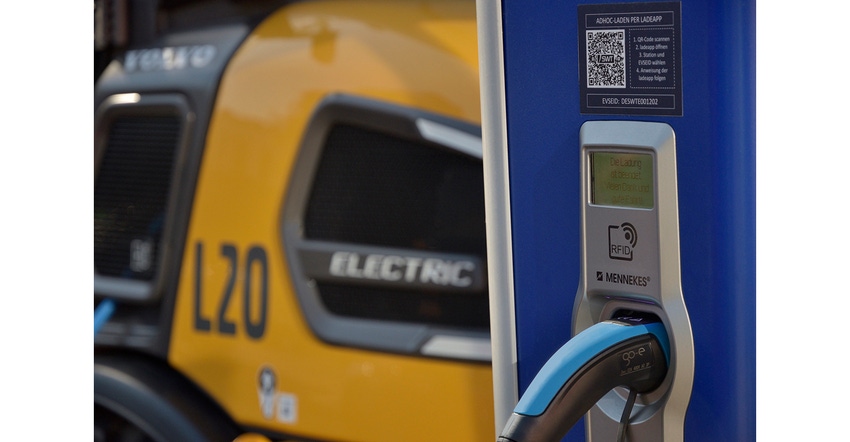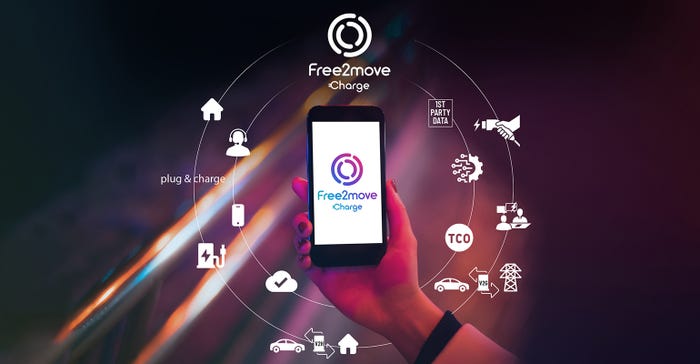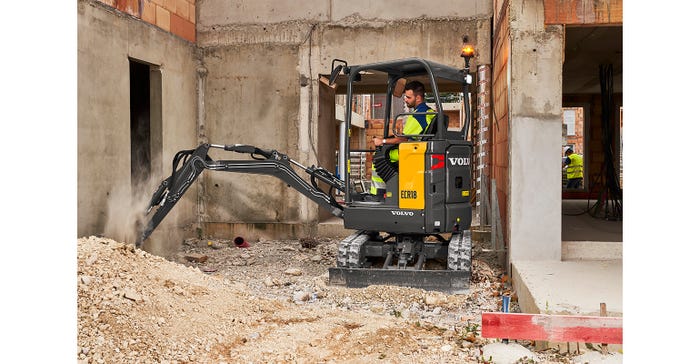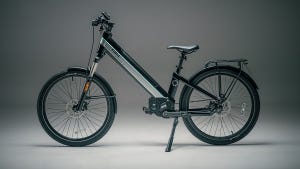EV Charging Update: Stellantis & Volvo Make Their Moves
The developments by Stellantis and Volvo are only the latest examples of how growing EV adoption is driving the expansion of charging networks and interoperability efforts.

The world has witnessed a remarkable surge in adopting electric vehicles (EVs) in recent years. However, the success of electric mobility is directly connected to a robust and accessible charging infrastructure. The public and the private sector are constantly expanding their charging networks and collaborating on interoperability efforts. In a previous article, we highlighted Rivian's recent support for Tesla's North American Charging Standard (NACS). Expanding on this progress, let's delve into the latest developments within the charging industry.
Stellantis launches a complete charging ecosystem
Stellantis—a global automaker—recently announced the launch of Free2move Charge, a comprehensive ecosystem designed to meet the diverse charging and energy management requirements of electric vehicle (EV) customers. This initiative seeks to provide seamless charging solutions for EV owners in various settings such as home, business, and while on the move.
“As the pace of mainstream EV adoption accelerates, our customers need us to be more than just a mobility provider,” stated Ricardo Stamatti, Stellantis Senior Vice President, Charging & Energy Business Unit. “We are taking the lead in establishing a dedicated business unit that will support our bold electrification strategy and act as a natural extension of our iconic brands. Free2move Charge is the first product rolling out, exemplifying our purpose of delivering performance, value, sustainability, and electrified mobility freedom for all.”

Free2move Charge will provide the following three solutions:
Free2move Charge Home delivers private customers support with installation, financing, and warranty of home charging and other energy hardware and services. Options can range from AC charging cables and wall boxes today to Vehicle-2-Home, Vehicle-2-Grid, and complete energy management systems with cutting-edge features like touch-free wireless solutions and inductive robot charging under development for future releases.
Free2move Charge Business tackles all hurdles as a one-stop-shop platform with a full suite of charging and energy services: early-on support, estimation of initial and future running costs, right-sizing of charging infrastructure, installation, maintenance, and public charging access while on the go.
Free2move Charge GO guarantees seamless access to the largest possible curated network of public charging points through partners in North America, Europe, and other regions to be announced soon. In addition to access, payment, and 24–7 support, Free2move Charge GO will progressively launch leading features like Plug and Charge, reservations, loyalty programs, subscriptions, prepaid packages, single invoice/billing, and even deliver a charge to a requested location when needed.
Volvo CE is making available its fast-charging 48V protocol
Volvo Construction Equipment (Volvo CE) has introduced its 48V DC protocol for electric charging solutions to expedite electrification and facilitate customers with a multi-branded fleet. There is no universally adopted industry standard for 48V DC (direct current) charging solutions, specifically catering to the power needs of electric compact machines. Consequently, customers with a fleet comprising multiple brands often need help procuring various chargers to accommodate their diverse equipment.

In response to this challenge, Volvo CE has proactively shared its brand-agnostic software protocol and plug specifications utilized in its 48V off-board DC chargers. Commonly known as fast charging, this initiative by Volvo CE allows other original equipment manufacturers (OEMs) and suppliers to leverage this information when designing their charging solutions for compact machines. Volvo CE aims to foster the development of a broader ecosystem of charging options across the industry by promoting collaboration and knowledge exchange.
Fredrik Tjernström, Electromobility Solutions Sales at Volvo CE, stated: “We want to contribute to a standardized, reliable, and efficient electric ecosystem that makes it easy for our customers to go electric. By making our charging interface public, we hope to see more and more charging solution providers and other machine OEMs using the same charging protocol – moving us a step closer to an industry standard for the benefit of customers everywhere.”
Fostering collaboration and innovation in the charging industry is a move that simplifies the charging process for customers with multi-branded fleets and promotes the development of a wider range of charging solutions. Also, recognizing the critical need for a robust charging infrastructure, both public and private entities are actively working towards expanding charging networks and collaborating on interoperability initiatives. With continued focus and investment in charging infrastructure, electric mobility will continue to flourish, paving the way for a greener transportation landscape.
About the Author(s)
You May Also Like





